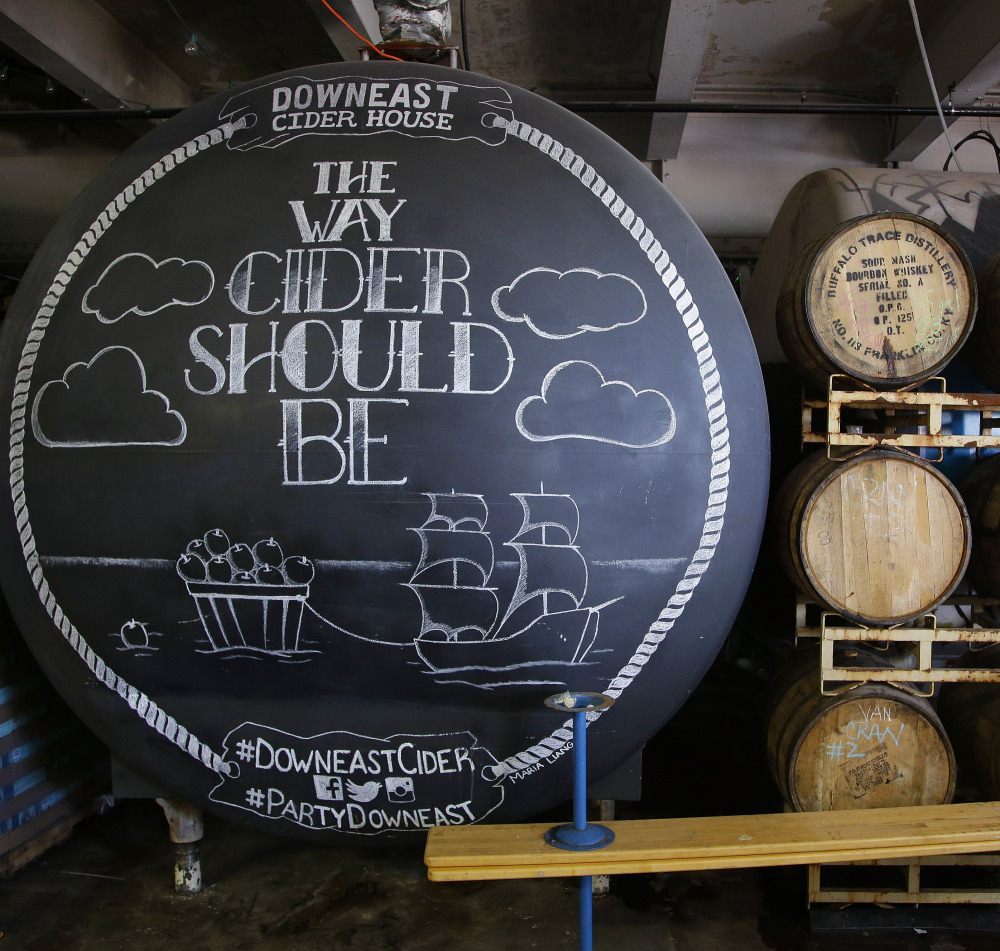BOSTON — There was a day not so long ago when this country had squat to offer as far as hard ciders. And for those of us who came of age on this deliciously dryly-sweet boozy beverage, it kind of sucked.
Having spent my university years in Scotland, I took advantage of many a pint of hard cider to warm my soul during the bitter, damp seasons (11 months of the year) and make studying metaphysics more tolerable. But when I graduated and returned to the United States, I was dismayed to discover so few choices on our shelves and in our bars. And what few there were, rarely were worth drinking.
That was more than a few years ago. Today, we are awash in hard cider choices, a trend that has piggybacked on the craft beer wave. Sadly, most of them still aren’t worth drinking, tending to be either stupidly sweet or breathtakingly dry. After a while, I simply shrugged and chalked it up to the U.S. not having a strong cider culture, nor much history making it, at least compared to Europe.
Then I spent this summer living in Boston, where Downeast Cider House ciders flow something akin to water. I first encountered the cider at a Cambridge bar, where the waitress told me it was produced in Maine. That turns out to be true mostly in spirit, despite the name. It’s a solidly Boston-based company that started in Maine in 2012, but moved for reasons amusingly told via cartoons on the company’s website – downeastcider.com/history/.
And the company produces a deliciously murky cider. Wait … murky?
Murky isn’t often a term associated with delicious. But roll with this one. I balked when my first pint was poured. But then I tasted. Clean and crisp, a little sweet, a little dry. Which is to say, a balanced cider.
The company was started by Ross Brockman and Tyler Mosher during their final year at Bates College in Lewiston. Brockman’s brother, Matt, also joined the troupe. Why is their cider different? They’ll tell you it’s because they do everything from scratch. They’ll also mention that their ciders aren’t filtered, hence the murkiness. They are right, of course, but their motivation matters, too.
When Mosher and Brockman started playing around with making cider during college, They wanted to do something that stood out from other ciders being produced. “So we decided to make a hard cider that tasted like fresh apples,” Mosher said recently.
The resulting ciders are refreshing and lightly sweet, but not cloying. My favorite is their “original,” which accounts for nearly three-quarters of the 17,000 barrels they expect to produce this year, a more than doubling of overall production over last year.
Distribution of Downeast Cider House ciders is mostly at bars and by the can in New England, New York and New Jersey. They are worth hunting for.
J.M. Hirsch is the food editor for The Associated Press. He blogs at http://www.LunchBoxBlues.com and tweets at http://twitter.com/JM_Hirsch. Email him at:
jhirsch@ap.org
Send questions/comments to the editors.



Success. Please wait for the page to reload. If the page does not reload within 5 seconds, please refresh the page.
Enter your email and password to access comments.
Hi, to comment on stories you must . This profile is in addition to your subscription and website login.
Already have a commenting profile? .
Invalid username/password.
Please check your email to confirm and complete your registration.
Only subscribers are eligible to post comments. Please subscribe or login first for digital access. Here’s why.
Use the form below to reset your password. When you've submitted your account email, we will send an email with a reset code.